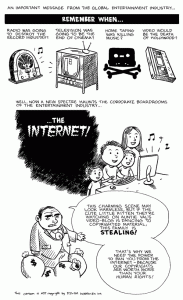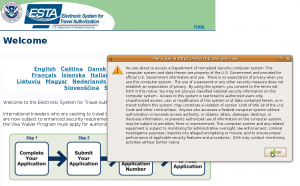 You’ve probably heard of the Great Firewall – a more or less successful censorship project by the Chinese government to control what information its citizens can access in the internet. This is not a good thing. Freedom of press does not exist in China. Freedom of press is important (see the current Chinese human rights issues and almost every dictatorship in history for the consequences).
You’ve probably heard of the Great Firewall – a more or less successful censorship project by the Chinese government to control what information its citizens can access in the internet. This is not a good thing. Freedom of press does not exist in China. Freedom of press is important (see the current Chinese human rights issues and almost every dictatorship in history for the consequences).
And now we move on to Ireland, today. Eircom (the major ISP in Ireland) have agreed to block access to file sharing sites, including Pirate Bay. Before I continue, I have one thing to say: “Eircom you weak kneed b****!” I cannot believe that they have bowed to pressure by the Irish Recorded Music Association (Irma) and are going to blanket block access to file sharing, whether it be nefarious film and music rips, or the latest (free, no copyright) Linux distribution, or home video made by your pal down the road!
Blocking file sharing is like banning video cameras because you could film porn with them, or banning balaclavas because you could rob a shop with one.
TV and radio stations are subject to strict regulations on what they can broadcast and who they pay revenue to. Up until now, the Telco’s have claimed immunity from this control because they only provide the transport medium, and do not have no control over the source or destination. The way the internet is built, this is very true: a company in Ireland cannot be made responsible for content generated in Sweden, and making it responsible will only end in tears. As in this case, if they block Pirate Bay, they will block a lot of illegal file sharing, and some legal file sharing. They will probably miss out on some other file sharing platforms, and thereby allow illegal content to be transferred by other channels.
You may wonder then, if succumbing to the pressures of the Irma is just opening the door for Eircom to be their puppet, and setting a precedence which may eventually end up with them being responsible for all the content they transfer, why would they do it? Short term gain! File sharing accounts for a huge percentage of the data transfer which the Internet Service Providers (ISPs) like Eircom have to pay for these days. They get the monthly subscription fees from their customers, and pay for all data they send/receive outside of their own network. They are winning if they pay less than they charge. If they can justify blocking a significant portion of the traffic they have to pay for, they can save a lot of money, and shunt responsibility for the degraded service away from themselves (good for press and image). For the short term, it makes sense, especially because with current technology it is not be possible to block all illegal activity while allowing all legal activity. But if they can follow most requests made by Irma (a minimal effort, and little bad press because it can easily be sold as “doing the right thing“) and as a result reduce their overhead by 90%, they’re in a win-win situation.
Some examples of laws which would be similar in effect:
- Banning balaclavas because most bank robbers use them. Never mind about the people who want to keep their head warm when it’s snowing!
- Make a toll collector responsible for the legality of the content of the trucks passing through his booth.
- Banning fluids on aircraft because you could make a complex liquid bomb out of liquids. As a result millions are spent by passengers buying “safe” water in the duty free and millions more spent by transport authorities removing liquids from said passengers.
- Making hammers illegal – you could intend to smash in a head with it rather than hang a picture on the wall.
Let’s put this in perspective: I think for example that it’s good that access handguns is restricted – they are extremely powerful, and their effects are nearly always violent. Peer-to-peer file sharing technology on the other hand is a very general tool, equivalent to a hammer in the real world. In the hands of an angry mob, it is a dangerous weapon, but most of the time it is the basic tool of every handy man.
I have purposely left out the whole issue of copyright infringement, and whether it should be legal or not to copy music and film. That is another issue. For now I would like to have only illegal activity banned or blocked and retain the right to freedom of speech and not be censored.


